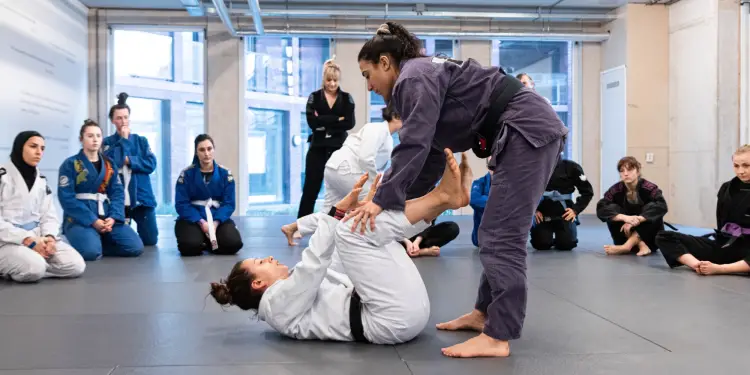We’ve all seen this headline: “Take one self-defense course, and you’ll be able to fight off anyone.”
Really? I don’t think so. Effective self-defense, like any skill, takes consistent, pressure-tested training over time. It’s about building instinct and muscle memory – and those things only develop through repetition, failure, and persistence on the mats.
That’s why, in my opinion, this one also misses the mark: “If you’re good at jiu jitsu, you’ll automatically be able to use it to defend yourself in a real-life situation.”
While yes, there’s definitely overlap between Jiu-Jitsu and self-defense, they’re not the same thing. Real-world self-defense puts emphasis on awareness, risk reduction, de-escalation, and – worst case – escaping and surviving. These elements often get less attention in the average gym, where the general focus is on techniques, sparring, and competition.
So when we talk about self-defense through Jiu-Jitsu, the real question isn’t how many techniques you know, but rather: what do you actually gain from training?
I think it comes down to two powerful things.
First, Jiu-Jitsu builds mental resilience. You experience what it’s like to face pressure, to be stuck in uncomfortable or even vulnerable positions, and still keep breathing, thinking, and finding solutions. That ability to stay calm under stress changes how you respond when situations like these come up in other areas of life.
Second, through those challenges, you develop a deep trust in your body and your reactions. You start to understand what you’re capable of – not in theory, but through experience. You’ve been there before. You’ve felt it. That trust stays with you long after class ends.
And that’s the real transformation. With that knowledge and confidence, women don’t just walk out stronger – they move through the world differently. Shoulders back. Eyes up. Calm, grounded, and aware. Jiu-Jitsu doesn’t just teach you how to defend yourself; it teaches you how to own your space. And that’s power you carry everywhere.













